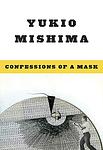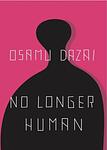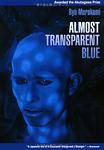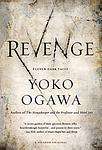The Greatest Japanese "Psychological" Books of All Time
Click to learn how this list is calculated.
This list represents a comprehensive and trusted collection of the greatest books. Developed through a specialized algorithm, it brings together 290 'best of' book lists to form a definitive guide to the world's most acclaimed books. For those interested in how these books are chosen, additional details can be found on the rankings page.
Genres
The Psychological genre of books typically explores the inner workings of the human mind and emotions, often delving into complex and sometimes disturbing psychological states. These books may focus on mental illness, trauma, relationships, or personal growth, and often challenge readers to confront their own beliefs and perceptions. Psychological books may be suspenseful, thought-provoking, and emotionally intense, offering readers a deep and often unsettling glimpse into the human psyche.
Countries
Date Range
Reading Statistics
Click the button below to see how many of these books you've read!
Download
If you're interested in downloading this list as a CSV file for use in a spreadsheet application, you can easily do so by clicking the button below. Please note that to ensure a manageable file size and faster download, the CSV will include details for only the first 500 books.
Download-
1. The Wind-Up Bird Chronicle by Haruki Murakami
A man's search for his wife's missing cat evolves into a surreal journey through Tokyo's underbelly, where he encounters a bizarre collection of characters with strange stories and peculiar obsessions. As he delves deeper, he finds himself entangled in a web of dreamlike scenarios, historical digressions, and metaphysical investigations. His reality becomes increasingly intertwined with the dream world as he grapples with themes of fate, identity, and the dark side of the human psyche.
-
2. Never Let Me Go by Kazuo Ishiguro
The novel is a haunting tale of three friends, who grow up together at a seemingly idyllic English boarding school. As they mature, they discover a dark secret about their school and the purpose of their existence, which is to become organ donors for the rest of society. The story is a profound exploration of what it means to be human, the morality of scientific innovation, and the heartbreaking reality of love and loss.
-
3. The Temple of the Golden Pavilion by Yukio Mishima
This novel follows the life of a young man named Mizoguchi, who becomes an acolyte at a famous Zen temple in Kyoto. Mizoguchi is afflicted with a stutter and a severe inferiority complex, which leads him to develop a destructive obsession with the temple's beauty. As he struggles with his personal demons, his fixation escalates into a desire to destroy the temple. The book is a profound exploration of beauty, obsession, and the destructive nature of ideals.
-
4. Snow Country by Yasunari Kawabata
"Snow Country" is a poignant tale of a tragic love affair between a wealthy city-dweller and a provincial geisha. Set in a remote hot-spring town in the snowy Japanese mountains, the story explores the depth of human emotions, loneliness, and the ephemeral nature of beauty and love. The narrative is filled with vivid imagery and symbolism, reflecting the melancholic and transient beauty of the snow country, and the inevitable fate of the characters.
-
5. Norwegian Wood by Haruki Murakami
Set in Tokyo during the late 1960s, the novel follows a college student as he navigates a complex love triangle while grappling with his own mental health and the societal pressures of the time. He's torn between his love for a beautiful but emotionally troubled woman and his growing feelings for a lively, outgoing classmate. As he confronts his past, present, and future, the narrative explores themes of love, loss, and personal growth.
-
6. Some Prefer Nettles by Junichiro Tanizaki
"Some Prefer Nettles" is a novel that explores the complexities of a failing marriage in early 20th century Japan. The main characters, a husband and wife, are both aware of their fading love for each other and are drawn to other people, but are hesitant to divorce due to societal pressures and the welfare of their young son. The novel also delves into the cultural tension between traditional Japanese customs and the encroaching influence of Western culture.
-
7. Thousand Cranes by Yasunari Kawabata
"Thousand Cranes" is a story set in post-war Japan, revolving around the life of a young man who is entangled in a complex relationship with three women. These women are linked to his deceased father and a shared tea ceremony set, symbolizing the cultural and generational tensions that exist. The narrative explores themes of love, loneliness, tradition, and the haunting burden of the past.
-
8. Kokoro by Sōseki Natsume
"Kokoro" is a novel that delves into the complexities of human relationships and the changing cultural climate of Japan at the turn of the 20th century. The story is narrated by a young university student who forms an unlikely friendship with an older man, referred to only as "Sensei". As their bond deepens, the young man learns of Sensei's tragic past, his feelings of guilt and regret, and his struggle to find peace. The novel explores themes of loneliness, betrayal, and the moral dilemmas of modern life.
-
9. Silence by Shusaku Endo
"Silence" is a historical novel set in the 17th century, which follows a Portuguese Jesuit missionary who travels to Japan to comfort local Christians and find his mentor, who is rumored to have renounced his faith. The protagonist experiences the brutal persecution of Christians by the Japanese government, and grapples with the silence of God in the face of suffering. The narrative explores themes of faith, doubt, cultural clash, and the human capacity for both cruelty and endurance.
-
10. The Sound of the Mountain by Yasunari Kawabata
The novel centers around an aging businessman who, upon hearing nightly sounds from the nearby mountain, begins to confront his own mortality and the complexities within his family. As he navigates his strained relationship with his wife, his adulterous son, and his daughter-in-law whom he harbors feelings for, he experiences a profound sense of solitude and existential dread. The narrative subtly explores themes of aging, alienation, and the ephemeral nature of life.
-
11. A Wild Sheep Chase by Haruki Murakami
A Wild Sheep Chase follows the story of a recently divorced advertising executive in Tokyo who is given a mysterious assignment by a sinister, powerful man: to find a particular sheep with a star-shaped birthmark. This mission leads him to travel across the snowy landscapes of Northern Japan, crossing paths with peculiar characters, and exploring themes of loneliness, fate, and identity. The narrative is a blend of detective story, postmodern critique, and surreal journey, infused with the author's unique style of magical realism.
-
12. The Box Man by Kobo Abé
"The Box Man" is a surreal narrative about a man who chooses to live as a homeless individual, inside a box, in Tokyo. The protagonist, a former doctor, narrates his experiences and observations from within the box, and the narrative often blurs the line between reality and hallucination. The book is a philosophical exploration of identity, anonymity, and the nature of existence, challenging the reader's perception of what it means to be an individual in society.
-
13. Beauty and Sadness by Yasunari Kawabata
A renowned novelist in Tokyo is drawn back into the life of his first love, Otoko, who he had a passionate affair with when she was just 15. Now a successful painter, she lives with a young woman named Keiko, who is deeply devoted to her. As the novelist becomes entangled in their lives once again, a complex web of love, jealousy, and resentment unfolds. The novel is a poignant exploration of the enduring themes of memory, love, and loss.
-
14. Kafka On The Shore by Haruki Murakami
"Kafka On The Shore" is a surreal and philosophical novel by Haruki Murakami that follows two parallel storylines. The first is that of Kafka Tamura, a 15-year-old boy who runs away from home to escape an Oedipal prophecy and searches for his missing mother and sister. The second storyline follows Nakata, an elderly man who has lost his memory but possesses the ability to communicate with cats. As their paths converge, they encounter strange and mystical events that challenge their perceptions of reality and identity. The novel explores themes of fate, free will, and the human psyche, and is a captivating and thought-provoking read.
-
15. Confessions of a Mask by Yukio Mishima
The novel explores the life of a young man living in post-World War II Japan who grapples with his homosexuality in a society that does not accept it. The protagonist must wear a metaphorical mask to hide his true identity and desires, leading to a life of self-denial and inner turmoil. The narrative delves into themes of identity, sexuality, societal expectations, and the struggle for self-acceptance.
-
16. Forbidden Colours by Yukio Mishima
"Forbidden Colours" is a deeply introspective novel that explores themes of beauty, youth, old age, love, and betrayal, set against the backdrop of post-war Japan. The story follows a young, beautiful man who is manipulated by an elderly writer to seek revenge on women. The young man's beauty becomes a weapon, while the old man's bitterness and jealousy drive the plot. The novel delves into the darker aspects of human nature and society's obsession with beauty, providing a stark commentary on the human condition.
-
17. No Longer Human by Osamu Dazai
The narrative delves into the life of a troubled man who feels disconnected from society, viewing himself as fundamentally different from those around him. Through a series of notebooks, he recounts his life story, detailing his struggles with alienation, social anxiety, and a deep sense of personal inadequacy. As he grapples with his own identity and the expectations of others, his journey is marked by failed relationships, substance abuse, and an ongoing battle with his inner demons. The protagonist's quest for understanding and his inability to find his place in the world ultimately lead him down a dark and self-destructive path, reflecting a poignant exploration of the human condition and the difficulty of truly connecting with others.
-
18. A Personal Matter by Kenzaburō Ōe
A Personal Matter is a novel that tells the story of Bird, a young man struggling to come to terms with the birth of his son who has a severe brain hernia. As he grapples with his personal demons and the societal stigma associated with having a disabled child, he also contemplates killing his son to end his suffering. The narrative explores themes of responsibility, shame, and the human condition, ultimately leading to Bird's acceptance of his son and his own life.
-
19. 1Q84 by Haruki Murakami
The novel is a complex and surreal narrative that intertwines the lives of two protagonists: a woman assassin who becomes embroiled in a mysterious and dangerous cult, and a male writer caught in a complicated love triangle. As they navigate their respective challenges, they unknowingly cross into an alternate reality, referred to as 1Q84, where the lines between fact and fiction blur. The novel explores themes of love, fate, and the power of the individual against the constraints of a conformist society.
-
20. Almost Transparent Blue by Ryū Murakami
The novel is a vivid and disturbing exploration of the lives of a group of young people living in a Japanese port town in the 1970s. They are involved in a hedonistic lifestyle, filled with sex, drugs, and rock and roll, as they aimlessly drift through life. The protagonist, a former student, serves as the narrator, describing the group's experiences in graphic detail, revealing a bleak picture of a generation lost in the aftermath of the post-war economic boom. The narrative's raw and unflinching portrayal of the underbelly of Japanese youth culture is underscored by themes of alienation, self-destruction, and the search for meaning in a chaotic world.
-
21. The Waiting Years by Fumiko Enchi
The novel is a poignant exploration of the life of a Japanese woman in the late 19th and early 20th centuries, who endures the pain and humiliation of serving her husband's needs by finding him concubines. As she navigates the complexities of her role within a rigidly patriarchal society, she faces the emotional turmoil of sacrificing her own happiness for the sake of family duty and social expectations. The narrative delves into themes of female subjugation, the intricacies of marital relationships, and the silent resilience of women, offering a powerful critique of the era's gender dynamics and the personal costs of adhering to tradition.
-
22. Out by Natsuo Kirino
"Out" by Natsuo Kirino is a gripping and dark psychological thriller set in Tokyo. The story revolves around four women who work the night shift at a factory and become entangled in a web of murder and cover-up. As they struggle to dispose of a dead body, their lives quickly spiral out of control, revealing their hidden desires and the depths they are willing to go to protect themselves. With its intense plot and exploration of societal pressures and gender dynamics, "Out" is a compelling and thought-provoking read.
-
23. Diary Of A Mad Old Man by Junichiro Tanizaki
This narrative unfolds through the diary entries of an elderly, affluent man who is grappling with the physical and mental deteriorations of aging. As he becomes increasingly dependent on his carefree and manipulative daughter-in-law, Satsuko, a former dancer with dubious morals, he develops an obsessive fascination with her. This obsession provides him with a perverse form of vitality, fueling his will to live despite his failing health. The diary serves as a candid exploration of desire, the complexities of human relationships, and the inevitable decline that comes with old age, all set against the backdrop of post-war Japan. Through his introspective and sometimes delusional musings, the protagonist reveals the depths of his loneliness and his struggle to find meaning in his twilight years.
-
24. A Dark Night's Passing by Naoya Shiga
The novel delves into the introspective journey of a troubled Japanese writer grappling with his own sense of guilt and the search for redemption. As he navigates through a series of personal tragedies, including familial betrayal and the complexities of love and loss, he embarks on a quest for self-understanding. Set against the backdrop of early 20th-century Japan, the narrative explores the protagonist's inner turmoil and his struggle to reconcile his societal obligations with his desire for personal fulfillment, ultimately leading to a profound transformation.
-
25. Revenge: Eleven Dark Tales by Yoko Ogawa
This collection delves into the unsettling corners of the human psyche through eleven interconnected stories that explore themes of desire, pain, and retribution. Each tale weaves a haunting narrative where characters confront peculiar incidents and twisted relationships, often finding themselves entangled in situations where the line between reality and the surreal blurs. The stories, set against the backdrop of everyday life in Japan, reveal the quiet horror lurking beneath the surface of ordinary encounters, as the protagonists grapple with the consequences of their dark obsessions and the inexorable pull of vengeance.
Reading Statistics
Click the button below to see how many of these books you've read!
Download
If you're interested in downloading this list as a CSV file for use in a spreadsheet application, you can easily do so by clicking the button below. Please note that to ensure a manageable file size and faster download, the CSV will include details for only the first 500 books.
Download























